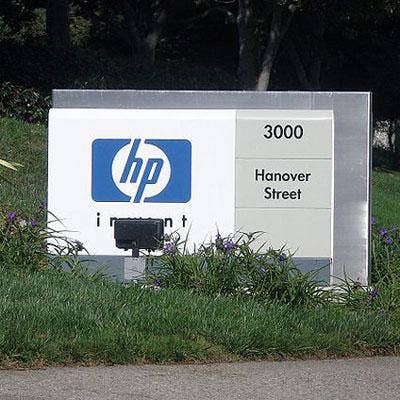Executive Interview: HP Networking Head Talks New NFV Unit, Cisco InterCloud Strategy

Mayer's Next Move
Bethany Mayer, who for almost three years oversaw Hewlett-Packard's $2.5 billion networking division, is taking on a new challenge at the technology giant.
In February, Mayer was tapped to lead a brand-new business division within HP, dedicated entirely to Network Functions Virtualization, or NFV. A close relative of software-defined networking, NFV refers to the virtualization of Layer 4-7 network functions, such as firewalls and load balancing, and is targeted largely at the carrier or service provider market. In a recent interview with CRN, Mayer shed more light on HP's NFV push, how the NFV unit fits into HP's broader cloud strategy, and how that strategy differs from competitors such as Cisco. Here's a glimpse into that conversation.

What's The Aim Of HP's New NFV Unit?
This is a cross-company initiative that is essentially turning into a business unit around Network Functions Virtualization. It's across the company because HP has a very strong and broad portfolio that can address Network Functions Virtualization for service providers.
One thing you may not know is that we have a very strong telco focus already within the company. We do a very significant amount of business with carrier customers today. And the interesting thing about Network Functions Virtualization is that the focus of it is really around taking technology that otherwise would be viewed as IT technology and using it potentially to build out a revenue-generating network in the carrier world.

What Does HP's NFV Portfolio Look Like?
We actually have over 14 virtualized functions, and we have an entire architecture that we have built.
We created this program called OpenNFV, and that is more than our go-to-market [strategy], it's a program for Network Functions Virtualization. OpenNFV consists of several things, and the first is architecture. That architecture starts with ... an infrastructure layer, a virtualization layer [that includes] our SDN controller and also virtualized compute with partners like VMware, Red Hat and Microsoft, and then we have created several virtualized functions, which we have had for many years.
We have virtualized several of our functions, which include HSS [Home Subscriber Service], HLR [Home Location Register], virtual services router, virtual switching -- there are several different virtual functions. And then we have created an NFV Director, which is the orchestrator that allows the service provider to chain together all these different functions.

How Does HP's NFV Play Compare To Cisco's Or Juniper's?
First, I think we have the most comprehensive portfolio available. That's very key. Whether it's the infrastructure, whether it's the virtualization layer, whether it’s the orchestration layer or the cloud, we have all of those elements. ... I would say ours is the most comprehensive [portfolio] in the industry right now.
I think the other key is our partnering, and the fact that we are partnered with NSN [Nokia Solutions and Networks], Alcatel-Lucent and with NEC, who are all very strong in this market and want to provide a solution that is about choice for their customers.

Why Do You Consider HP NFV More 'Open' Than Competitors?
The third [differentiator] is the openness of our portfolio. If the customer wants a heterogeneous environment and wants to choose not just HP, but wants to perhaps choose a technology that is a new technology to come to market, they know ... we will help them certify that technology and ensure its success within their infrastructure.
I think the ability to have choice and openness is also a big aspect of our differentiation, and one that, if you talk to Cisco or talk to Juniper, that is not true. They are not partnering. They are showing up with a full stack and saying "all or nothing."
[Being open] is definitely a matter of partnering, but it's also about the protocols and standards adhered to -- will you adhere to protocols and standards? Will you enable an environment where, say, another company's virtualization tech can be used instead of yours? [For Juniper and Cisco,] in many cases the answer is 'no.' Will you interoperate successfully using nonproprietary tech? In many cases, the answer is 'no.'

Why Is The NFV Unit Part Of HP's Cloud Unit?
One thing we are very certain of is that all of these carrier providers want to provide cloud services to their customers, every single one of them. And they are getting very tough competition from cloud providers like Google and Facebook and Amazon and others.
Cloud is an intricate, integral part of this [NFV] offering, as part of our architecture, and is the end point for many [carriers] in terms of being able to offer a telco- or carrier-grade cloud to their customers for cloud services of varying types, whether its Infrastructure-as-a-Service, or Platform-as-a-Service or even Applications-as-a-Service -- all of these things are definitely interesting to the carrier market.
So having NFV be part of cloud is important because we know that, ultimately, [carriers'] goal is to have a cloud services offering.

How Does HP's Cloud Strategy Compare To Cisco InterCloud?
Well, first of all, we have had a cloud. We didn't just announce that we are going to have a cloud. We have had a cloud in place for now two and a half, three years. So that's one piece that's different.
The other piece is that [HP cloud] is open. We utilize OpenStack, we have provided our customers with the ability to either have a virtual private cloud to burst to our virtual private cloud using their cloud, [or to use] our public cloud offering that has an orchestration layer that is open standard-based.
So our capabilities, and the open nature of our cloud, are clear, and that's what we have based our cloud [strategy] on for the past two and a half years.

Why Are Carriers Adopting NFV?
Carriers have basically decided that they want to utilize much more virtualization in their infrastructure, which, of course, we have been using in the IT industry for a very long time. [They want] to use that virtualization and infrastructure, and use commercially available, off-the-shelf components to create that [infrastructure] in order to ... provide them with much more flexibility, obviously more virtualization, and the ability to lower their operating expenses.
The reason why they are so focused on this is that they are being faced with some pretty significant challenges competitively, from folks like Google and the Facebooks and the Amazons of the world, who are really using this technology to their advantage.

How Much Business Does HP Do With Carriers Today?
We've actually been in this space for many, many years, and we have over 5,000 telco professionals, so we are in these environments every day. We believe the opportunity for us is in the multibillions [of dollars], no question, and I don’t want to give specifics, because that’s not something HP does, but it is a very large opportunity for us.
We already have a very large market position in the carrier market, in any case, and then this is incremental to that. We think the opportunity right now is really around working with our carrier customers and partners to verify different use cases for them so that they can go into field trial this year and then move beyond that into actually virtualizing different aspects of their networks.

What Do You Mean By NFV Being A 'Companywide' Initiative?
It's really around aligning resources across the company to focus on this [opportunity], and to really show the capabilities we have to offer.
The One HP message, especially in this case, needs to be loud and clear. We truly offer end-to-end capabilities, whether it's our cloud capabilities, whether it's our converged infrastructure or the infrastructure we offer, whether it’s the NFV Director that we have built already, or the virtualized network functions that we have built in the networking business unit, as well as other business units -- these are capabilities that go across HP. So the One HP message, and the One HP focus, is going to be really important here.

How Much Of HP's Carrier Business Is Through The Channel?
We do have partnerships in the carrier market, as well, but we also sell directly. So, it’s a combination of partner and direct sell into the carrier market.
Overall, our percentage of sell to the carrier market using a partner is still in the 50-plus percent range, so it's still very strong there, and we feel like that is just going to continue. We don't have any anticipated change in that go-to-market strategy.
[For partners,] there will be services elements of this [NFV] offering and, in many cases, they have a very specific technology focus that they are very knowledgeable about, so we would partner with them going into a carrier environment.

With You Leading NFV, Who's Heading The HP Networking Unit?
We haven't named anyone, but there is a search going on right now.